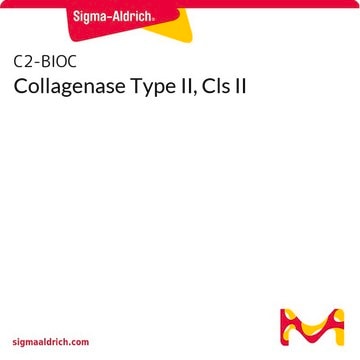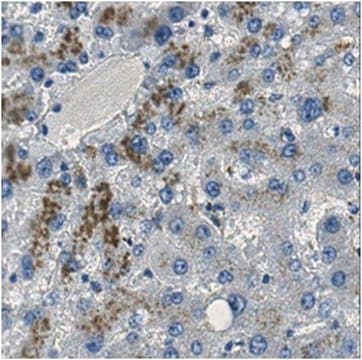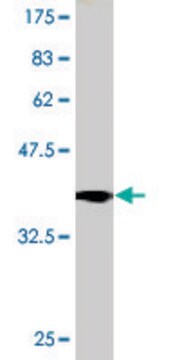M5795
Anti-MAP Kinase Kinase (MEK, MAPKK) antibody produced in rabbit
whole antiserum
Sinónimos:
Anti-MAPKK, Anti-MEK
About This Item
Productos recomendados
biological source
rabbit
conjugate
unconjugated
antibody form
whole antiserum
antibody product type
primary antibodies
clone
polyclonal
mol wt
antigen 45 kDa (MEK1a)
antigen 46 kDa (MEK2)
contains
15 mM sodium azide
species reactivity
mouse, human, rat
technique(s)
microarray: suitable
western blot: 1:20,000 using rat brain extract and mouse NIH 3T3 fibroblast lysate
UniProt accession no.
shipped in
dry ice
storage temp.
−20°C
target post-translational modification
unmodified
Gene Information
human ... MAP2K1(5604) , MAP2K2(5605)
mouse ... Map2k1(26395) , Map2k2(26396)
rat ... Map2k1(170851) , Map2k2(58960)
¿Está buscando productos similares? Visita Guía de comparación de productos
General description
Specificity
Immunogen
Application
Biochem/physiol Actions
Disclaimer
¿No encuentra el producto adecuado?
Pruebe nuestro Herramienta de selección de productos.
Optional
Storage Class
10 - Combustible liquids
Certificados de análisis (COA)
Busque Certificados de análisis (COA) introduciendo el número de lote del producto. Los números de lote se encuentran en la etiqueta del producto después de las palabras «Lot» o «Batch»
¿Ya tiene este producto?
Encuentre la documentación para los productos que ha comprado recientemente en la Biblioteca de documentos.
Nuestro equipo de científicos tiene experiencia en todas las áreas de investigación: Ciencias de la vida, Ciencia de los materiales, Síntesis química, Cromatografía, Analítica y muchas otras.
Póngase en contacto con el Servicio técnico








